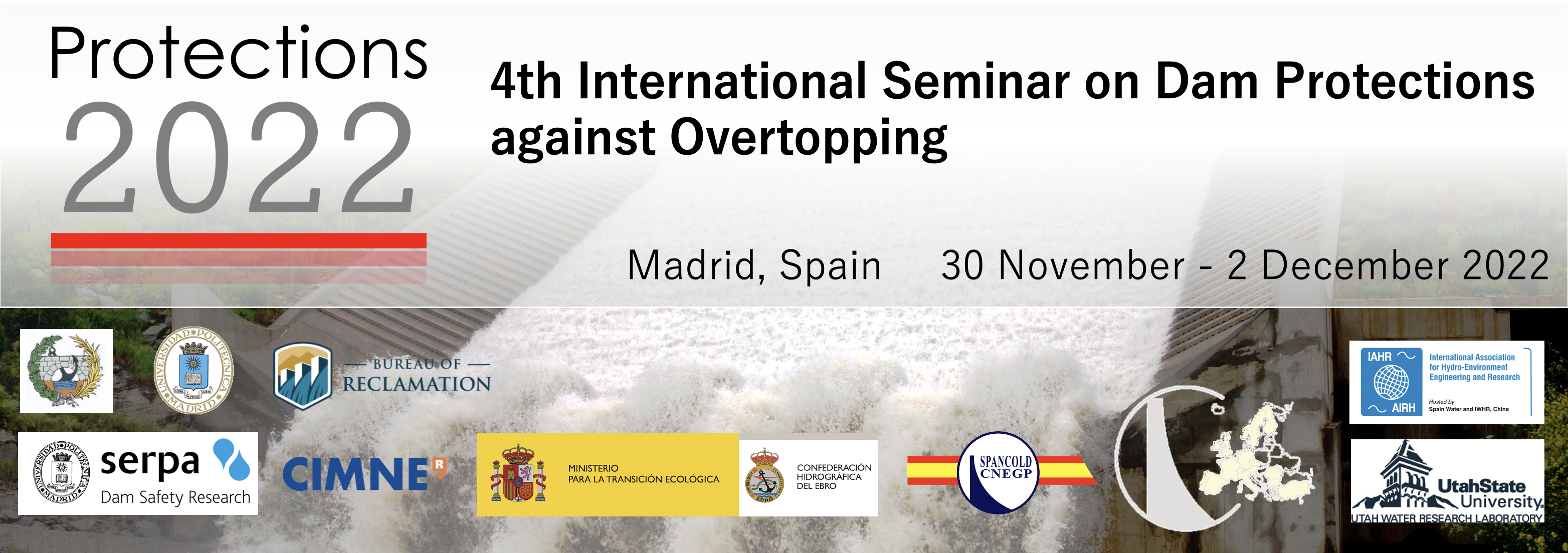Session
Session 4
Start Date
12-1-2022 11:05 AM
Description
In regions with a temperate climate, a well-maintained grass sod on a clay layer is considered a reliable protection for dams and dikes. In the Living Lab Hedwige-Prosperpolder, on the left bank of the Scheldt river straddling the border between Belgium and the Netherlands, a series of 27 overflow tests with a purpose-built overflow generator has been executed to determine the strength of the protective layer against erosion at various conditions. The goal of this paper is to inform on the executed test program and the initial results. From the results, it was concluded that in general, a high-quality grass cover on the landside dike slope can withstand high overflow discharges well for 12 to 30 h, without severe erosion damage. Anomalies, such as the presence of animal burrows, reed vegetation, and already present deformations can strongly reduce the resistance of the cover layer and may lead to failure within a couple of hours.
Creative Commons License

This work is licensed under a Creative Commons Attribution 4.0 License.
Included in
Overflow Tests on Grass-Covered Embankments at the Living Lab Hedwige-Prosperpolder: An Overview
In regions with a temperate climate, a well-maintained grass sod on a clay layer is considered a reliable protection for dams and dikes. In the Living Lab Hedwige-Prosperpolder, on the left bank of the Scheldt river straddling the border between Belgium and the Netherlands, a series of 27 overflow tests with a purpose-built overflow generator has been executed to determine the strength of the protective layer against erosion at various conditions. The goal of this paper is to inform on the executed test program and the initial results. From the results, it was concluded that in general, a high-quality grass cover on the landside dike slope can withstand high overflow discharges well for 12 to 30 h, without severe erosion damage. Anomalies, such as the presence of animal burrows, reed vegetation, and already present deformations can strongly reduce the resistance of the cover layer and may lead to failure within a couple of hours.


